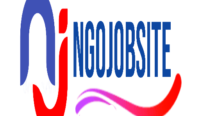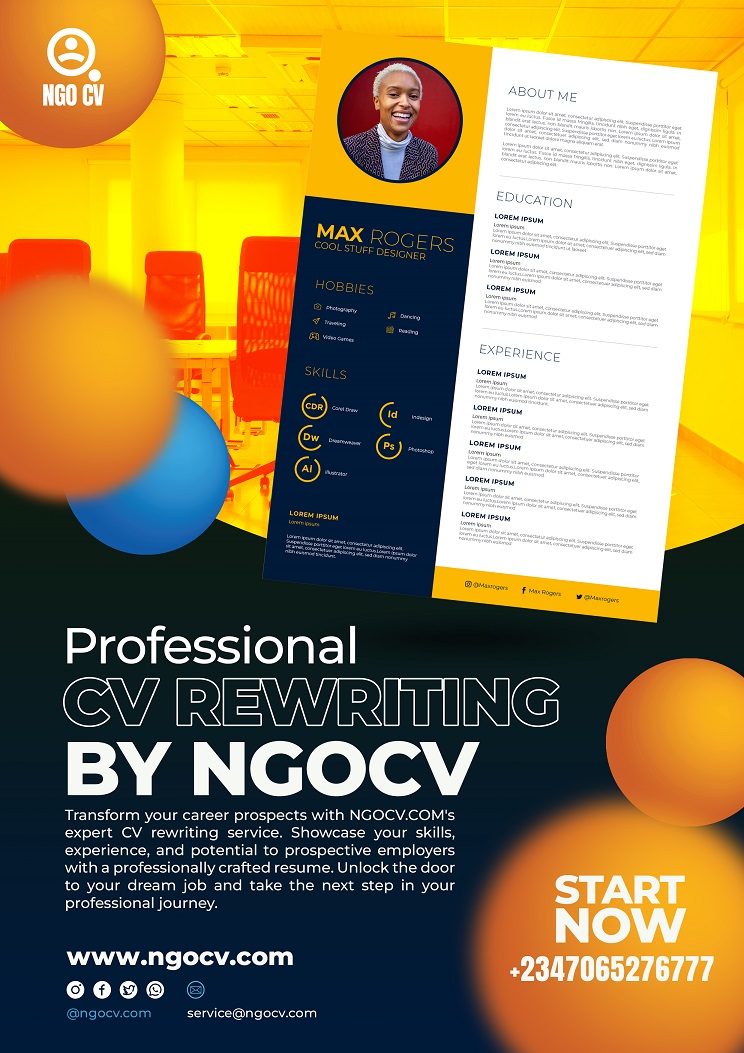BACKGROUND ON IMPACT AND REACH
IMPACT Initiatives is a humanitarian NGO, based in Geneva, Switzerland. The organisation manages several initiatives, including the REACH Initiative. The IMPACT team comprises specialists in data collection, management and analysis and GIS. IMPACT was launched at the initiative of ACTED, an international NGO whose headquarter is based in Paris and is present in thirty countries. The two organizations have a strong complementarity formalized in a global partnership, enabling IMPACT to benefit from ACTED’s operational support on its fields of intervention.
REACH was born in 2010 as a joint initiative of two International NGOs (IMPACT Initiatives and ACTED) and the United Nations Operational Satellite Applications Programme (UNOSAT). REACH’s purpose is to promote and facilitate the development of information products that enhance the humanitarian community’s decision making and planning capacity for emergency, reconstruction and development contexts. REACH facilitates information management for aid actors through three complementary services: (a) need and situation assessments facilitated by REACH teams; (b) situation analysis using satellite imagery; (c) provision of related database and (web)-mapping facilities and expertise.
We are currently looking for a Senior Assessment Officer to support and oversee our Emergency Sectoral Unit in Nigeria.
Position: Senior Assessment Officer
Department: REACH
Duration: 12 months
Location: Maiduguri, Nigeria
Starting Date: ASAP
COUNTRY PROFILE
In North East Nigeria (NEN), the ongoing crisis continues to have a profound impact on the population, leading to displacement both within and out of the region and high rates of unmet needs among internally displaced persons. The conflict additionally exacerbates prior unmet needs among non-displaced and host communities. While the primary driver of the conflict remains violent conflict, including ISWAP (Islamic State West Africa
Province), JAS (Jama’atu Ahlis Sunna Lidda’awati wal-Jihad) and associated armed opposition groups (AOGs), other underlying factors, such as climate change, poverty, and disease outbreaks, exacerbate need and further complicate aid delivery.
Against the backdrop of this protracted crisis, the humanitarian situation in Northeast Nigeria remains one of the world’s most severe. Out of the Northeast’s Borno, Adamawa, and Yobe (BAY) state’s total population of 13 million people, an estimated 7.9 million are in need of humanitarian assistance.[1] Borno state remains the epicentre of the crisis, containing over 80% of the region’s over 2 million internally displaced persons.[2] Major incidents throughout 2019 have led to continued mass displacements and severely affected the provision of humanitarian assistance in the region.
The sudden influx of arrivals added strain to the existing infrastructure of the humanitarian community, resulting in high rates of unmet needs, overcrowding in camps, and exposure to protection risks for vulnerable groups. The congestion status of the camps has resulted in over 60% of IDPs residing outside of camps within host communities, further complicating service delivery.[3] The intensity of needs within Maiduguri and the instability of the security situation in more remote regions has resulted in increased focus on populations in accessible areas; however, populations in the less accessible areas are presumed to have even greater needs.
These hard-to-reach areas are estimated to contain around 971,000 persons.[4] Very little is known about the specific conditions and needs of the populations living in these areas, but they are presumed to have little mobility, limited essential services, and little or no access to humanitarian aid. The same threats that severely limit the ability of humanitarian actors to conduct thorough assessments also immediately affect the population living in the region. REACH’s Humanitarian Situation Monitoring (HSM) assessments in the Hard-to-Reach areas of Borno state have found that people in these inaccessible areas lack of access to basic services including health facilities, access to livelihoods and have decreased access to foods, access to improved water sources and access to humanitarian services.[5]
As an initiative deployed in many vulnerable and crisis-affected countries, IMPACT is deeply concerned by the devastating impact the COVID-19 pandemic may have on the millions of affected people we seek to serve. IMPACT is currently scaling up its programming in response to this pandemic, with the goal of identifying practical ways to inform humanitarian responses in the 20+ countries where we operate, including Nigeria. Since the Covid-19 pandemic outbreak, OCHA has now increased the People in Need (PiN) to 10.6 million due to the COVID-19 pandemic.[6]
As such, the needs for evidenced-based Humanitarian Aid and information on populations in both accessible and inaccessible areas is paramount to a coordinated response. IMPACT has been present in Nigeria since 2017, providing a growing evidence base for humanitarian response planning through sectoral, multi-sectoral and area-based assessments as well as information management services. IMPACT is looking to continue to provide the humanitarian community with relevant and reliable information to strengthen strategic programming and needs-based targeting in Northeast Nigeria.
PROJECT PROFILE
The Emergency Sectoral Unit focuses on improving data collection methods, analysis, and reporting of five sectors— FSL, WASH, Health, Nutrition and Cash. The Emergency Sectoral Unit regularly engages with both internal and external assessment teams, technical agencies, and key analysis forums to identify information gaps and provide technical support as needed. REACH’s Emergency Sectoral Unit’s general strategy follows three key objectives:
- Improving FSL, WASH, Nutrition, and Cash data quality, availability, and analysis – including identifying key information gaps and working towards filling the gaps
- Improving the feedback system between assessments, analysis and decision making within the response
- Informing emergency prioritization in the response in Northeast and Northwest Nigeria.
These objectives are directly connected, partially through technical analysis, information management and decision support systems and working groups of which REACH is either supporting in developing, co-chairing or providing technical support – such as the Cadre Harmonise (CH), Assessment and Analysis Working Group, Nutrition Information Working Group (NIWG) and other technical working groups within the sectors. Further, the Sectoral Unit regularly engages with technical agencies to pilot new methodologies that could have high value-added potential for the humanitarian response as a whole.
Within the unit, there are multiple work streams that focus on sector specific information gaps as well as an emphasis on pulling it all together and promoting a more integrated approach to analysis – including WASH infrastructure mapping, SMART surveys and market monitoring. The Emergency Sectoral Unit is also responsible for
POSITION PROFILE
The Emergency Sectoral Unit Senior Assessment Officer will be responsible for providing oversight over of the Emergency Sectoral Unit research cycles, under the supervision of the IMPACT Deputy Country Coordinator and IMPACT HQ in Geneva. He/she will be responsible for the implementation and completion of the various work streams within the Emergency Sectoral Unit and the provision support to other Assessment Officers in the unit. He/She will be responsible for engaging with cluster partners, assisting and reviewing in related tool design, and provide technical support in validating and analysing Emergency Sectoral Unit products and research cycles. He/She will be responsible for engagement with technical forums and workshops and other relevant technical working groups. He/she will also contribute to related Emergency Sectoral Unit partner coordination, reporting, grants management, and finance requirements as needed by the IMPACT Country Coordinator.
FUNCTIONS
Under the supervision of the IMPACT Deputy Country Coordinator (DCC) in Nigeria and of IMPACT’s HQ in Geneva, this IMPACT Senior Assessment Officer (SAO) will be responsible for the management and implementation of all Sectoral assessments. S/he will be responsible for oversight of ongoing research cycles, including managing all Emegency Sectoral Team staff, assessment, database/GIS officer(s), and field staff to support with the production of outputs.
The REACH Senior Assessment Officer’s responsibilities include:
· In coordination with the DCC, supporting in designing and implementing REACH sectoral assessment strategy and research cycle(s);
· Directly line-managing REACH Assessment Officer(s), GIS/Data Officer(s) and the Field Manager to ensure smooth and timely implementation of activities;
· Facilitate engagement and feedback on research design with external partners, including implementing partners and the donor;
· Supporting the development and revision of assessment strategies, reports or new proposals;
· Provide technical backstop and guidance for other REACH Assessment Officers
· Lead on designing the methodology, tools, and data analysis plan according to REACH requirements and principles;
· Coordinate external partners and internal teams during data collection;
· Support in organizing and facilitating joint analysis workshops, as applicable;
· Oversee the data analysis and drafting information products, which comply with REACH’s guidelines;
· Implementing and monitoring the REACH assessment strategy in coordination with the DCC;
· Supporting the development/revision of assessment / programme strategies, reports or new proposals;
· In coordination with the DCC and Country Coordinator (CC), external representation of REACH with donors, partners, and the wider aid community through clusters and sectoral working groups;
· Liaising with programme staff of other ACTED departments to ensure close coordination and information sharing is maintained;
· Coordinate timely and accurate reporting to IMPACT HQ along with the DCC and CC.
· In coordination with the Country Coordinator external representation of REACH with Donors, Partners and the wider Aid Community through clusters and sectoral working groups;
1. KEY REACH Emergency Sectoral Unit SAO Objectives
· Objective: Oversight/Expansion of Sector Specific Research Cycles and Grants
The SAO will be responsible for ensuring that all current research cycles are effectively implemented and meet contractual deliverables. The SAO will ensure that all ToRs/information products/disseminations meet the quality standards and requirements set by the Country Coordinator and IMPACT HQ. Furthermore, the SAO will work with partners to ensure that research cycles remain relevant and useful for the informing humanitarian response and in collaboration with the Country Coordinator and Unit Managers, ensure that Emergency Sectoral Unit RCs are utilized in all appropriate forums
· Objective: Engagement with Cadre Harmonise (CH) Taskforce/Working Groups and Workshops
The SAO is responsible for regular attendance and participation in the bi-annual Food Security CH workshop, providing support for the group in analysing Nigeria-wide food security, across multiple datasets and in accordance with the IPC Analytical Framework. He/She will also be responsible for planning and providing guidance to other REACH Assessment and field officers for the CH workshops.
· Objective: Oversight over Northeast Nigeria Inaccessible Areas Famine Monitoring System
The SAO in collaboration with the CH Inaccessible Taskforce focal points and other REACH Assessment Officer, will be responsible for overseeing the Famine Monitoring System initiative that monitors FSL, Nutrition, WASH, and Health indicators and carries out in-depth analysis between CH workshops to flag areas for high-risk for catastrophic food insecurity or acute malnutrition.
· Objective: Engagement with relevant technical agencies and REACH units
The SAO is responsible for active engagement with technical agencies as well as supervision of Assessment Officer in the unit with their external engagement with agencies like Sector working groups, Cash Working Group, key partners, donors, and other coordination bodies. Also, in close coordination with the IMPACT Deputy Country Coordinator and other REACH Unit Managers, the SAO is responsible for coordinating cross cutting research cycles and information, to support a more integrated approach. Additionally, He/She with regularly engage with relevant technical agencies or bodies to identify, support and add value to both data collection and analysis.
2. ASSESSMENT MANAGEMENT AND COORDINATION
1.1 Management of assessment processes
The SAO is responsible for designing the methodology and tools associated with each assessment, according to REACH requirements and principles. He/she will manage the planning, implementation, and follow-up of all REACH and project specific assessment activities conducted. The SAO shall manage logistics, financial, administration and HR processes directly related to REACH and liaise accordingly with the relevant ACTED counterpart. He/she is directly responsible for the implementation of proper REACH and ACTED FLAT procedures.
1.2 Implementation
The SAO is responsible for contributing to the implementation of assessment projects, and providing support to the development of assessment, database and GIS tools with the REACH team. This will specifically include, designing of data collection tools (household surveys, focus groups, and more); development or review of databases; contributing to GIS data collection procedures; and analysis of information to contribute to reports.
1.3 Coordination
The SAO shall provide technical support to the DCC and CC in terms of the preparation of new project proposals, development of programme strategies, implementation of project activities, and any other required reporting mechanisms. The SAO is responsible for the timely and accurate preparation of narrative and financial reports related to REACH activities in country through close liaison with the Project Development and Finance departments.
1.4 Technical Representation
The RM is responsible for regular attendance and participation in the bi-annual Cadre Harmonize (CH) workshops, providing support for the group in analysing Nigeria-wide food security, including REACH humanitarian situation monitoring data, market data, and other data sources to provide FSL and nutrition cluster understanding of priority areas for FSL and nutrition responses. He/She will also be responsible for planning and providing guidance to other REACH Assessment and field officers for the CH workshops.
3. REACH REPORTING
The REACH SAO is responsible for consolidating all analysis and conclusions from each assessment into REACH products such as factsheets, reports and briefs using standard formats. He/she will liaise with Geneva and Regional GIS/DB Specialists in order to represent data in static map formats, as relevant. The SAO is responsible for following the designated timeline of reports to be submitted to project partners and donors. He/she must ensure the writing of timely assessment reports and factsheets, ensuring the quality and accuracy of technical information provided as well as the confidentiality of collected information.
He/she will ensure that assessment reports contribute to aid coordination and planning and add to the general base of field knowledge in Nigeria for all organisations working in the region. The SAO will also store, organise and disseminate assessments, project documents and best practices among partners. He/she will coordinate timely and accurate reporting to REACH.
4. STAFF MANAGEMENT
The SAO is responsible for day-to-day management of assessment staff, Data/GIS staff and field manager. He/she is expected to guide and direct REACH staff and prepare and follow up work plans with each staff member that directly reports to him/her. The SAO will ensure that all field teams are comprehensively briefed on the objective, expected outputs and that the overall implementation strategy of any given activity is clearly understood. He/she will ensure that project/field staff are given training and complete all the necessary documentation in line with program requirements set by REACH. He/she will also be responsible for capacity building and staff development of enumerators, Field Officers and Junior Assessment Officers.
5. EXTERNAL ENGAGEMENT
The SAO is responsible for the representation of REACH in cluster and multi-sector meetings/technical working groups in country, and is expected to follow up on technical issues identified in meetings. This specifically will include liaising with external partners to identify potential for data sets to be integrated into existing databases and mapped to support the coordination of the broader humanitarian community. The SAO will further represent REACH vis-a-vis current and potential donors and communicate relevant information to the IMPACT DCC and CC. He/she will participate in inter-NGO meetings and those of UN agencies and any other relevant inter-governmental institutions at the national or provincial level.
CONFIDENTIALITY
The REACH SAO will maintain the strictest confidentiality on all data collected and related processes. He/she will actively take measures to prevent the unauthorized sharing of any information and data belonging to IMPACT and its partners, or collected during his/her assignment with IMPACT.
ACCOUNTABILITY TO COMMUNITIES AND BENEFICIARIES
The staff member is responsible for ensuring that all relations with the communities we work are conducted in a respectful and consultative manner. Due attention must be paid to ensuring that communities are adequately consulted and informed about IMPACT programme objectives, activities, beneficiary selection criteria, and methodologies. This is the responsibility of every IMPACT staff member.
REQUIREMENTS
· Excellent academic qualifications, including a Master’s degree, if relevant;
· 2-3 years of relevant working experience in a humanitarian setting;
· Excellent team management, coordination, organisational and planning skills required, including an ability to manage large workloads, oversee multiple teams and effectively meet deadlines, through an excellent ability to multi-task and prioritise;
· Experience with external engagement (donors, partners and other key stakeholders) required;
· Familiarity with the humanitarian coordination system required;
· Ability to operate R is an asset
· Ability to operate basic GIS is an asset
· Familiarity with the IPC / CH – Level 1 certification an asset
· Excellent communication and drafting skills required for effective report writing;
· Excellent analytical skills required- ability to situate findings within a wider context;
· Solution-oriented, flexible, and open-minded, including ability to operate in a cross-cultural environment required;
· Fluency in English required;
· Strong knowledge of Microsoft Word and Excel required;
· Experience with mobile data collection (ODK, ONA, KOBO) required;
· Knowledge of the Adobe Suite software, particularly Illustrator and InDesign an asset.
CONDITIONS
· Salary defined by the IMPACT salary grid; educational level, expertise, hardship, security, and performance are considered for pay bonus
· Additional monthly living allowance provided in country by IMPACT’s partner ACTED
· Food and lodging provided at the organisation’s guesthouse/or housing allowance (depending on contract length and country of assignment)
· Transportation costs covered, including additional return ticket + luggage allowance
· Provision of medical, life, and repatriation insurance + retirement package
How to apply
Kindly submit to the following link: REACH Senior Assessment Officer (Emergency Sectoral Unit) | Impact (impact-initiatives.org)
In case you encounter challenges using the application form, please contact us via [email protected]




